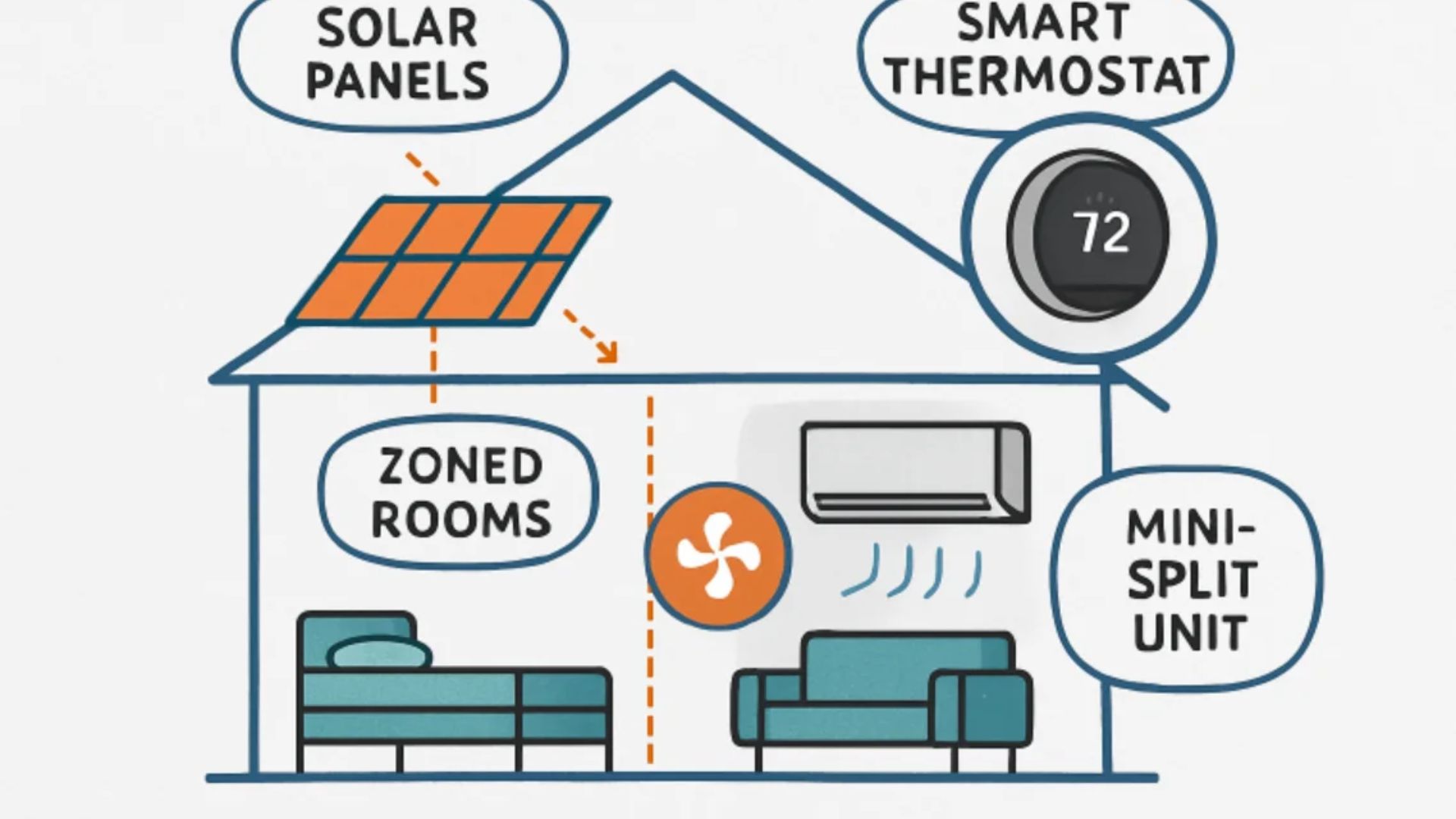Modern homes are embracing simpler, smarter ways to stay comfortable all year. Whether staying cool during summer or warm in winter, new technology and thoughtful design make climate control easier than ever. Tools such as smart thermostats, zoning systems, and even mini split heating and cooling offer efficient comfort without extra effort.
Indoor comfort today relies on intelligent systems that automate temperature adjustments, reduce energy use, and support sustainable living. With homes becoming more connected, creating an ideal indoor environment now requires less manual control and more smart innovation.
Smart Thermostats: Automating Daily Comfort
Smart thermostats eliminate constant manual adjustments by learning your habits and routines. Many models connect with sensors and digital assistants, delivering heating or cooling only where it’s needed. Because they adapt to schedules and occupancy, they help reduce wasted energy. ENERGY STAR reports that smart thermostats can save around $100 a year on heating and cooling costs.
Zoning Systems: Custom Temperatures for Every Space
Traditional single-thermostat setups often leave some rooms too hot or too cold. Zoning systems solve this by controlling temperatures in different areas independently. This means each room can stay comfortable without overworking the system. According to the U.S. Department of Energy, zoning can cut energy use by as much as 25%, making it a valuable upgrade for many homeowners.
Passive Solar Design: Using Nature to Regulate Temperature
Passive solar design uses the sun, shade, and natural airflow to maintain indoor comfort. Well-placed windows capture warmth in winter, while features such as overhangs and shading reduce heat in summer. Materials like brick or stone store and slowly release heat. Architectural sources note that these strategies reduce energy bills and support a more sustainable home with minimal reliance on mechanical systems.
AI-Powered Climate Systems: Learning and Adapting
Artificial intelligence adds a new level of precision to climate control. These systems analyze occupancy, weather forecasts, and indoor air quality, adjusting temperatures automatically. AI can also predict maintenance needs, helping homeowners avoid unexpected breakdowns or energy spikes. This proactive approach keeps comfort consistent and systems running efficiently.
Voice-Activated Control: Hands-Free Convenience
Voice assistants such as Alexa and Google Assistant bring effortless control to home climate management. Simple voice commands can adjust temperature, change modes, or activate preset routines. This benefit is especially helpful for multitaskers or homeowners who need accessible, hands-free options.
Energy-Efficient HVAC Systems: Modern and Sustainable
Current HVAC technology offers better performance with lower environmental impact. Features like variable-speed compressors and advanced filtration improve efficiency and comfort. Although the upfront cost can be higher, the long-term utility savings often outweigh the investment. ENERGY STAR recommends upgrading to high-efficiency systems as an effective way to cut overall energy use.
Natural Ventilation: Cooling the Traditional Way
Natural ventilation remains one of the simplest ways to improve airflow and reduce indoor heat. Cross-breezes, operable skylights, and well-placed vents help fresh air circulate without relying solely on mechanical systems. Studies show that even small improvements in ventilation and shading can significantly enhance indoor cooling.
Conclusion
Today’s climate control solutions blend smart technology, eco-friendly design, and user-friendly features. From smart thermostats and mini split systems to passive solar techniques and AI-driven automation, homeowners have more options than ever to maximize comfort while minimizing energy use. These advancements prove that comfortable living and sustainability can work together seamlessly in the modern home.








